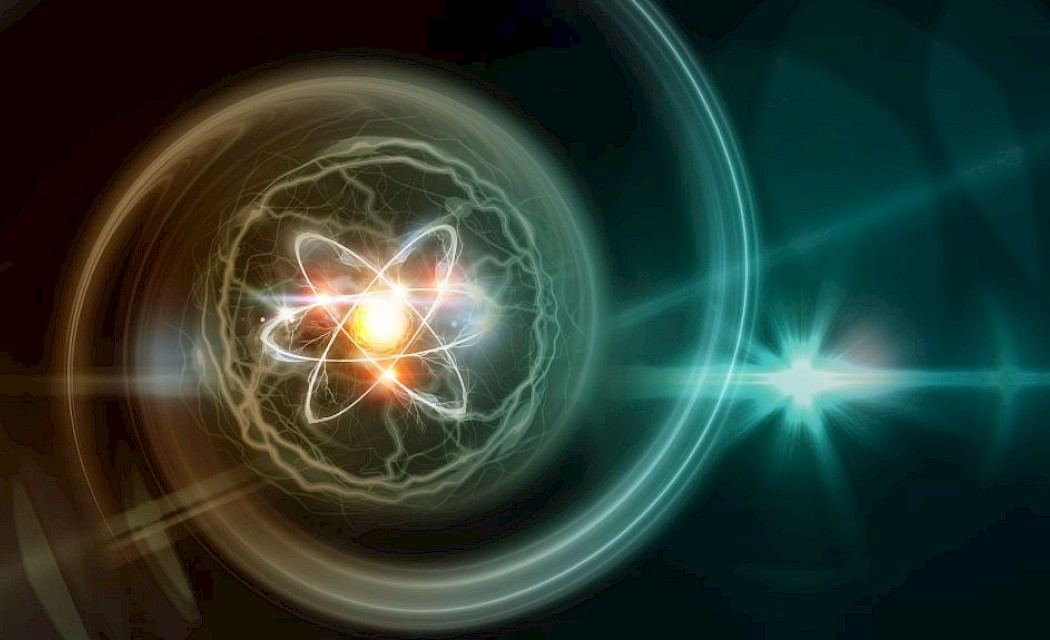The University of Oxford is to play a key role in a major new programme which aims to transform the lifecycle of graphite in nuclear energy - an essential material for the future deployment of nuclear power.
The five-year ENLIGHT programme (Enabling a Lifecycle Approach to Graphite for Advanced Modular Reactors) will develop vital technologies to support the deployment of next-generation nuclear energy technology. This will have a critical role in enabling the UK to achieve its net zero goals, since nuclear energy emits nearly zero carbon dioxide or other greenhouse gas emissions – but it comes with challenges.
ENLIGHT will address two of the most pressing issues; the need to secure a sustainable, sovereign supply of nuclear graphite and finding solutions to manage the country’s growing volume of irradiated graphite waste.
Led by the University of Manchester in collaboration with the Universities of Oxford, Plymouth, and Loughborough, ENLIGHT is supported with an £8.2m grant from UK Research and Innovation’s Engineering and Physical Sciences Research Council (EPSRC) with around £5m of contributions from industry partners.
The programme of research, collaboration, and skills development aims to secure the UK’s position at the forefront of nuclear innovation and as a global leader in advanced reactor technology and clean energy innovation.
Professor James Marrow, Department of Materials said: ‘I am delighted to be leading this work on designing new graphite materials in this major project. Our initial focus will be on novel studies of mechanical damage to support the design and qualification of new nuclear graphites for advanced fission reactors.’
Next-generation graphite for tomorrow’s nuclear energy
Within the programme, the University of Oxford will lead one of the three core strands: designing new graphite materials engineered to withstand extreme conditions in Advanced Modular Reactor (AMR) environments. This will complement the other strands of developing sustainable graphite and better understanding graphite performance.
Graphite is a critical component in many next-generation AMRS which will play a key role in achieving the UK’s ambition to deliver 24GW of new nuclear power by 2050.
The material accounts for around one-third of reactor build costs, yet despite its importance, the UK currently relies entirely on imports to meet demand.
With the current Advanced Gas-cooled Reactor fleet nearing decommissioning by 2028 and over 100,000 tonnes of irradiated graphite already stored, ENLIGHT will develop new methods to recycle legacy material and produce sustainable, high-performance graphite for future AMRs.
Creating new insight from advanced materials analysis
Led by Professor James Marrow (Department of Materials) and Associate Professor Dong Liu (Department of Engineering Science), the research carried out by Oxford will help develop and select new types of recycled and sustainable graphite that can withstand the radiation and harsh environments inside nuclear reactors. The team’s research will lead to computer-based models to predict how these materials will perform over time.
‘This work will draw on Oxford’s expertise in studying how materials become damaged, observing these changes directly as they happen, from the atomic level upwards’ said Professor Marrow. This will include characterising the impacts of radiation damage using a range of advanced techniques such as Raman spectroscopy, X-ray diffraction, thermal reflectance methods, focused ion beam milling, and 3D X-ray imaging.'
'The team will also examine graphite’s mechanical and physical properties at different scales. ‘Some of the critical studies will leverage Oxford’s deep experience at national facilities such as the Diamond Light Source for synchrotron X-rays and the ISIS neutron and muon source.’
The team will work to establish direct links between graphite’s nano- and microstructure with its properties at both small and large scales.
Associate Professor Liu said: ‘For instance, we will use advanced image analysis powered by deep learning to identify the different components of nuclear graphite and explore how these influence the material’s ability to conduct heat and withstand stress, especially after radiation exposure.'
'This work reflects exactly what we do every day in the Department of Engineering Science, where we are passionate about solving real-world industrial challenges while also exploring the fundamental science behind how complex materials behave.’
She added. ‘What makes ENLIGHT stand out is its full lifecycle approach—supporting the design and production of sustainable graphite materials for next-generation fission reactors, whilst simultaneously reducing the cost and volume of waste graphite.’
Further information about ENLIGHT can be found on the University of Manchester website.
Image provided by University of Oxford
